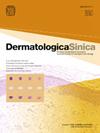Coronavirus disease 2019 in dermatology practice: Perspective of three levels of prevention on public health
IF 2.2
4区 医学
Q2 DERMATOLOGY
引用次数: 4
Abstract
Coronavirus disease 2019 (COVID-19), caused by severe acute respiratory syndrome coronavirus 2, has become a major public exigency of international concern. The COVID-19 epidemic has spread rapidly around the world, profoundly impacting people's lives. Patients are among those most affected by the pandemic. COVID-19 has adversely affected health-care systems, and the effects are long-lasting and devastating. Most medical institutions in the impacted countries and regions have been imbued with COVID-19 cases, both confirmed and suspected, leading to an overburdened health-care workforce like never before. While most of the critical situations involved internal medicine departments, such as infectious diseases, and intensive care units, other specialties, including dermatology, have also been profoundly affected by this pandemic. Dermatoepidemiology, the application of epidemiological methods to dermatology practice, is an important emerging discipline in dermatology. In this review, we discussed the influence of the COVID-19 epidemic on dermatology practice, as well as the application of public health strategies in dermatology. These findings from genetic epidemiological research, clinical trial networks, and pharmacovigilance research suggested that further research in dermatology requires collaborative studies across different fields, institutions, and countries. To solve the highly complex unsolved problems that we face, dermatologists and epidemiologists should be dynamic team members with multiple approach skills.2019冠状病毒病在皮肤科实践中的应用:三个层面的公共卫生预防视角
由严重急性呼吸系统综合征冠状病毒2引起的2019冠状病毒病(COVID-19)已成为国际关注的重大突发公共事件。新冠肺炎疫情在全球迅速蔓延,深刻影响着人们的生活。患者是受大流行影响最严重的人群之一。COVID-19对卫生保健系统产生了不利影响,其影响是长期的和毁灭性的。受影响国家和地区的大多数医疗机构都充斥着COVID-19确诊和疑似病例,导致卫生保健工作人员负担过重,这是前所未有的。虽然大多数危急情况涉及内科,如传染病科和重症监护病房,但包括皮肤科在内的其他专科也受到这次大流行的深刻影响。皮肤流行病学是将流行病学方法应用于皮肤病学实践的学科,是皮肤病学中一门重要的新兴学科。本文就新冠肺炎疫情对皮肤科实践的影响以及公共卫生策略在皮肤科中的应用进行综述。这些来自遗传流行病学研究、临床试验网络和药物警戒研究的发现表明,皮肤病学的进一步研究需要跨不同领域、机构和国家的合作研究。为了解决我们面临的高度复杂的未解决问题,皮肤科医生和流行病学家应该是具有多种方法技能的动态团队成员。
本文章由计算机程序翻译,如有差异,请以英文原文为准。
求助全文
约1分钟内获得全文
求助全文
来源期刊

Dermatologica Sinica
DERMATOLOGY-
CiteScore
2.80
自引率
20.00%
发文量
28
审稿时长
>12 weeks
期刊介绍:
Dermatologica Sinica aims to publish high quality scientific research in the field of dermatology, with the goal of promoting and disseminating dermatological-related medical science knowledge to improve global health. Articles on clinical, laboratory, educational, and social research in dermatology and other related fields that are of interest to the medical profession are eligible for consideration. Review articles, original articles, brief reports, case reports and correspondence are accepted.
 求助内容:
求助内容: 应助结果提醒方式:
应助结果提醒方式:


